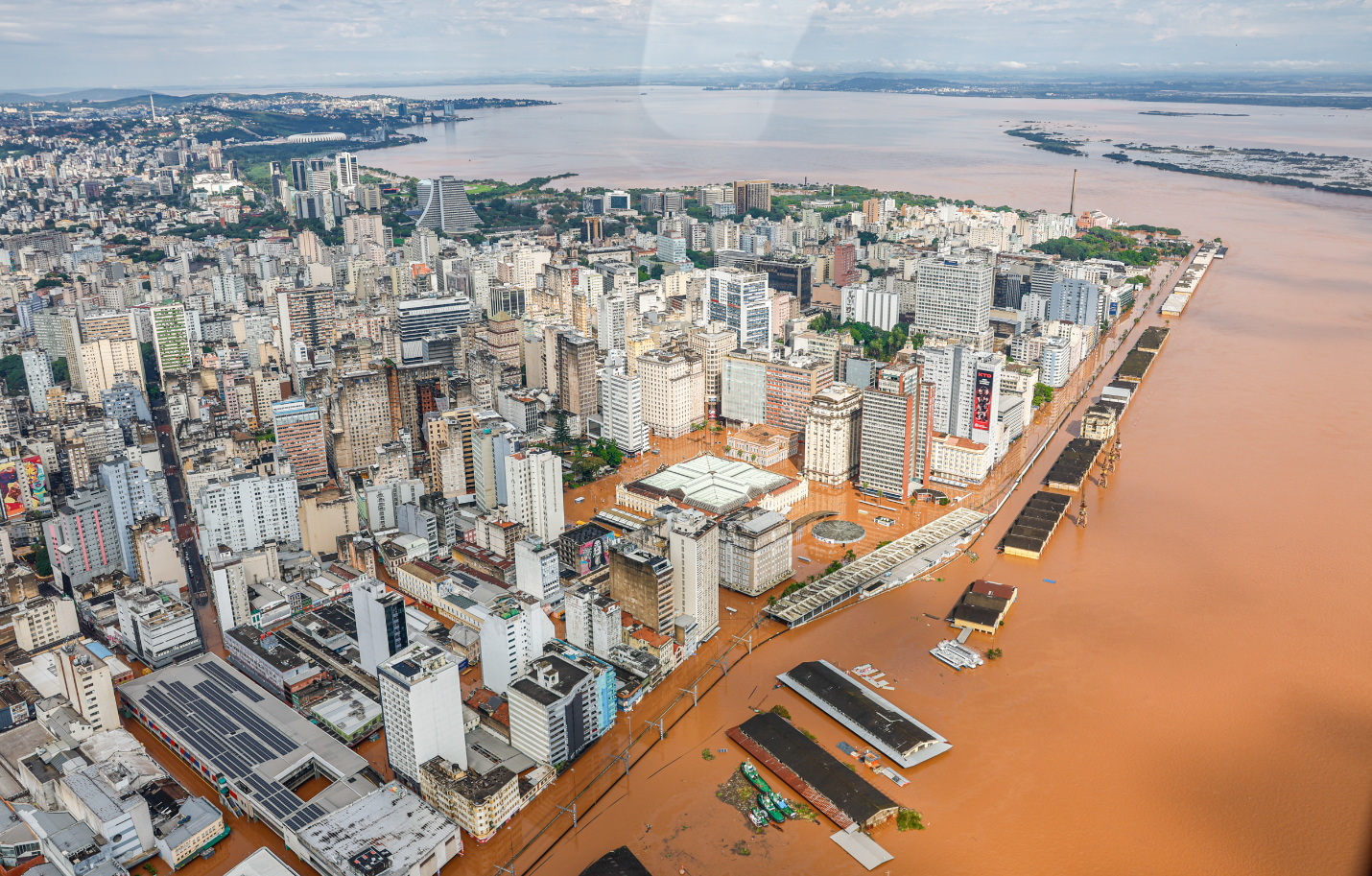Southern Brazil is underwater. What was once exceptional is now part of the new normal. Adaptation, climate emergency plans, and the valuation of ecosystems must be incorporated into policy. It is about the world we will leave to our sons and daughters.
Manfred Steffen/Latin America21
Climate change is one of the main problems humanity is facing. Global warming and increased frequency and intensity of climatic events are visible and measurable. Although the discussion on the impact of human activities on these phenomena persists, in the last decade, the environmental issue has been placed on the political agenda.
Environmental management and clean energy generation appear in the programs of almost all political parties. The question is whether politics will lead the transition to sustainability or just run after the problems. The extremes seem to indicate that we are not adequately controlling the problems.
The recent floods in southern Brazil can serve as an example to analyze the problem. The meteorological explanation would be that while the center of the country was suffering from a dry and hot wave, the south experienced heavy rains. The result was that the Guaiba river exceeded the flood level of 3 meters and reached, after nine days of rain, 5.33 meters. Meteorologists speak of a perfect storm.
Land washed away
The result was the greatest climatic disaster in the history of Brazil, in terms of the size of the territory and the number of people affected. More than 150 dead, 108 missing and about 620,000 displaced people make up the provisional balance sheet. The area impacted is larger than that of the United Kingdom. The reconstruction of the infrastructure will take decades.
If political parties are to lead the transition to a sustainable economy, they must speak clearly. It is no longer possible to pretend that catastrophes are exceptions and that some kind of comfortable normality will return sooner or later. It is definitely not enough to mention sustainability sporadically or to adhere to some noble environmental cause to return to the usual agenda.
Responsible environmental management, in line with the challenges that societies will really face, implies taking charge of some issues. These are not necessarily attractive, but on the contrary uncomfortable, as they challenge the certainties of the present.
Climate emergency
Extreme events are here to stay. The exercise of leadership forces us to say this clearly. If in the past they occurred in a century, it is likely that in the future they will occur in a decade. To face situations like the one in Rio Grande do Sul, it is necessary to be prepared. It is necessary to have plans for climate emergencies.
This has implications for the allocation of public funds to face increasingly intense and frequent floods and fires.
Adaptation
Climate events cannot be avoided. It is an illusion to pretend that there will always be an engineering solution to a river overflow, or a wall to contain sea level rise. Adaptation to future extremes implies a rethinking of ecosystem valuation.
Dunes are not heaps of unproductive sand. On the contrary, they constitute a dynamic ecosystem and dissipate the sea’s energy. They are, therefore, the most efficient defense against rising seas.
Valuation of the environment
Wetlands are not neighborhoods with mosquitoes. They are ecosystems rich in biodiversity. They also fulfill a key function, which is to absorb excess water during rainfall and make it available in times of drought.
The systematic destruction of these ecosystems has medium-term consequences that no wall will be able to cushion. It is necessary to seriously include the environmental consequences in the evaluation of many real estate developments built on drained wetlands, which are undoubtedly attractive from an economic perspective and in electoral contests.
Limited resources
After every catastrophe, promises of unlimited resource availability are made. The answer to drought should not be the search for another source of water that allows irresponsible use to continue. The key to sustainability is responsible use, which ensures the availability of the resource in the future.
Finally, catastrophes are not a curse. In the case of Brazil, they are associated with agricultural practices, specifically deforestation and the increase in soybean monocultures. In the last decades, in Rio Grande do Sul, one million hectares of forests were transformed into soybean crops. Three million hectares of pastureland were also lost. This changed the water absorption and retention capacity.
Political parties have the legitimacy of the vote and are accountable to the electorate for their performance. If they intend to continue leading the social agenda, they must update both discourse and practice. Promises of unlimited growth, of undertakings valued only in terms of the amount of investment, will lead to dramatic situations. It is a matter of preventing them and, if they occur, of having contingency plans.
Floods will inevitably happen again in the future. We can avoid building on flood plains so that, when they occur, people do not lose everything. The best defense against rising sea or river levels is not walls, but dunes, riparian forests and wetlands.
Political parties are not only beholden to their voters. As managers of public affairs, they are also responsible for the well-being of future generations. The catastrophe in southern Brazil is a clear warning. We should not ignore it, neither on Environment Day nor on other days.
*Translated by Janaína Ruviaro da Silva from the original in Spanish.













